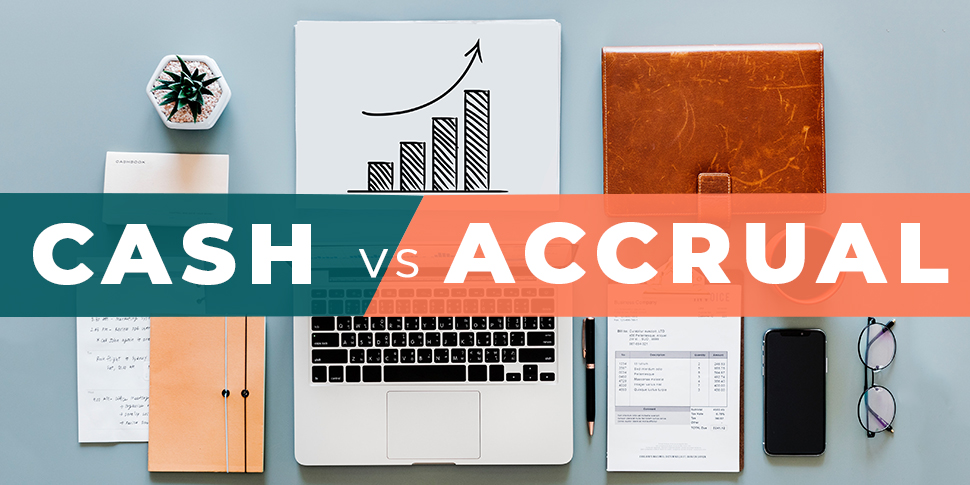When building a business, this is one of the questions many business owners must deal with on day one. It’s like asking a four-year-old how they like their coffee.
It’s a sad truth that life isn’t fair and most new business owners have never been taught the finer points of what cash vs. accrual really means. Simply put, it’s a style of accounting. In each, the transactions are recorded the same way (mostly), but the difference is really in how a business wants their data presented.
Okay, that’s an oversimplification for arguments sake. Ultimately, it’s’ not totally the business owner’s decision, as the business must be eligible to use cash accounting. We’ll get to that. Let us start at the beginning.
Accrual Basis
Accrual basis, the more complex of the two and what all businesses are required to use at some point in their business, is based on when income and expenses are accrued. In other words, the “action date” isn’t when the money moves, it’s when the sale or expense is created.
Let’s take an example: you get a bill dated Feb 25th and pay it on March 8th. In the accrual method, that bill (expense) accrued on Feb 25th. No money moved, just the bill was accrued.
The accrual method is required in certain instances and is more common in big business. Specifically, any business that averages over $25 million in revenue over a running three years. Also, if you have inventory, you should be using accrual basis accounting in your business.
Forecasting is crucial for businesses, and the more stable they are, the more meaningful forecasts become. Accrual allows for more accurate forecasting, by far. Also, depreciation and other features of accrual accounting allow for a more accurate picture of the health of the business than cash basis.
It’s also extra in the rules, the work and sometimes even the taxes. It also does not accurately reflect the cash available in the business. Because everything is about when actions are accrued, you’ll pay taxes on income you’ve not made yet, which can be hard on smaller businesses, especially the first year they are in accrual accounting.
Cash Basis
Cash is king. And for small businesses that don’t carry inventory, this is the first choice. It’s simpler and allows you to see how much cash your business actually has. We’re getting ahead of ourselves here.
Cash basis looks at when money moves. In the above example, the bill on the 25th that was paid on the 8th – it gets recorded on the books as a March transaction when using cash basis.
If someone doesn’t pay your November invoice until January, you aren’t spying taxes on that income until the following year. Yeah.
When budgets are the focus of a business, this allows for much more accurate budgeting. Cash flow is the real hero for small businesses and using the cash basis will give a much clearer picture and correlate more closely with your bank account.
Prepaid expenses and depreciation are not a factor here, although they can be used in budgeting and the like for planning. But the books show when the cash moved. That’s the key here.
Deciding Which to Use
Cash basis is generally used in small to medium businesses, especially those with a service-based business model.
However, there are certain situations when accrual accounting is a better option:
- when seeking investors
- when seeking loans or funding
- when forecasting becomes more important than budgeting
- When the IRS says your business is no longer eligible for cash basis
——————————————————————————————————————————-’
Profit & Equity, LLC is a full service bookkeeping firm that can set up business bookkeeping, perform monthly or quarterly maintenance, supports either cash or accrual basis accounting and can implement cash flow management strategically to support business growth.
We are a done-for-you bookkeeping firm for small business in health & wellness for humans and/or animals.

